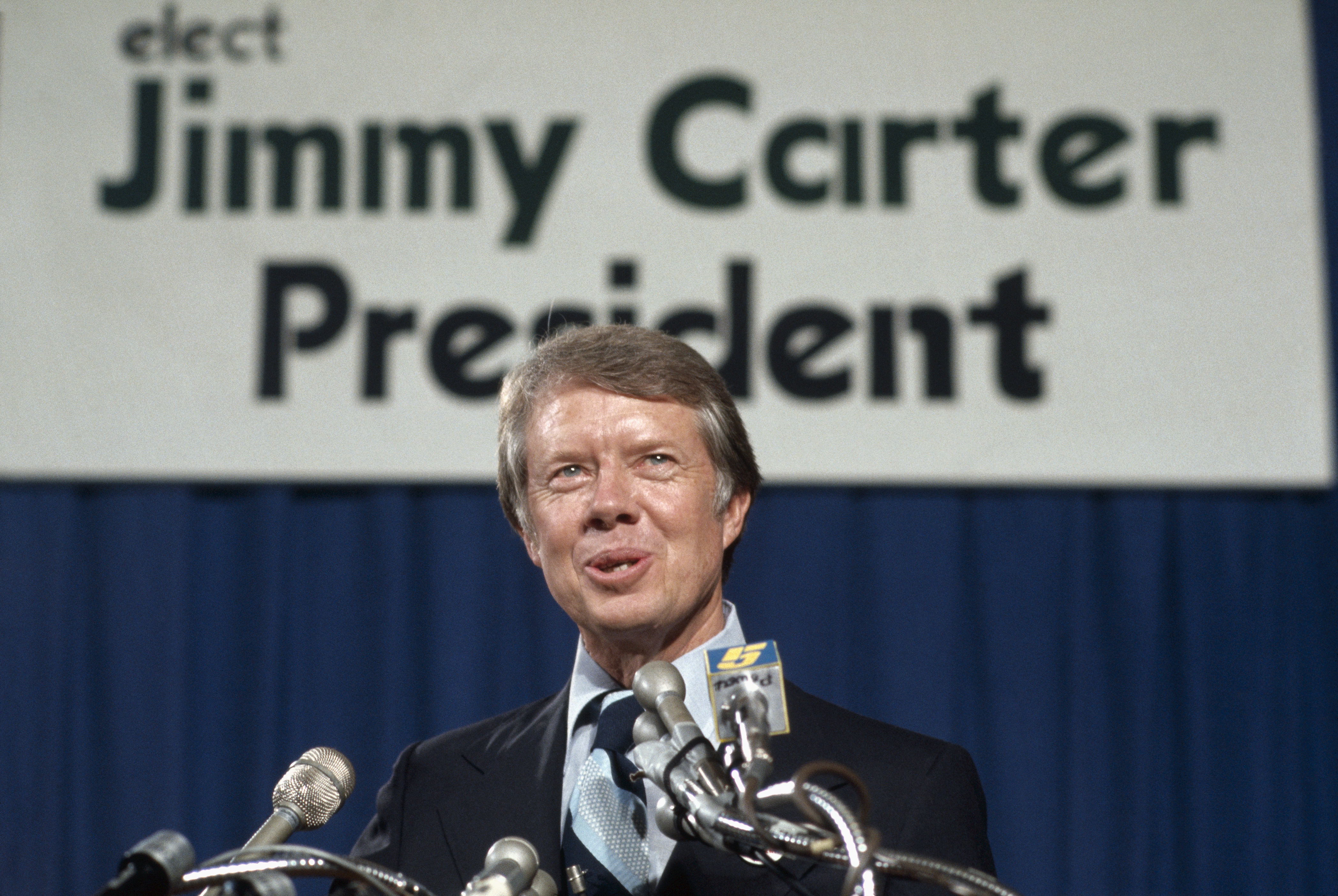Opinion
Bill Cotterell: What does Florida's Ron DeSantis have in common with Jimmy Carter? (No, seriously)
Maybe DeSantis, like Carter, saw what all those snooty political experts failed to see, our Capitol Columnist writes.

Florida Gov. Ron DeSantis visits a packed Red Arrow Diner, a traditional campaign stop for presidential candidates visiting the surrounding Manchester area, following a policy round table discussion in Bedford, New Hampshire on Friday morning, May 19, 2023. John Tully for The Washington Post via Getty Images
Maybe Gov. Ron DeSantis knows something most of us don’t.
He’s expected to announce his candidacy for president any minute now. He’s been seeing a lot of Iowa and New Hampshire, raising great gobs of money, staffing up a campaign team and contrasting himself to Donald Trump — without mentioning his name — for months now.
Recent Bill Cotterell columns –
- Florida abortion amendment has a rough road ahead
- Kids don’t know their history or how government works
- Resignation edict serves no purpose in presidential races
The conventional wisdom, based on Trump’s double-digit leads in Republican polling, is that the ex-president will crush DeSantis. But conventional wisdom has been wrong before.
Remember how everybody wondered what Sen. Barack Obama was really running for, since we all knew Hillary Clinton had the 2008 nomination in the bag?
Or how Rudy Giuliani was a lock for the GOP that year? Or how everybody laughed at “Jimmy Who?” from Georgia trying to run with the big dogs 40 years ago?

There aren’t many parallels between DeSantis and Jimmy Carter, but both men seem to capture the zeitgeist of their times.
Carter, forced out of the Georgia governor’s office by a single-term limit in 1974, knew he couldn’t beat Sen. Herman Talmadge that year, so he tried for something even more ridiculous.
“Jimmy Carter is running for WHAT?” an incredulous Atlanta Constitution headline asked when his staff began planting leaks about him. Carter himself said when he asked his wife what she thought, Rosalynn Carter harrumphed, “President of what?”
The networks and the bigfoot newspaper prognosticators were all talking about Rep. Mo Udall of Arizona, Sens. Henry “Scoop” Jackson of Washington and Frank Church of Idaho, even Gov. Jerry Brown of California — a somewhat dreamy-eyed newcomer dubbed “Governor Moonbeam.” Former Vice President Hubert Humphrey probably could have had the nomination again, but he didn’t run.
Carter saw what all those snooty political experts in Atlanta and Washington failed to see.
After the “imperial presidency” of Richard Nixon, Carter realized that a peanut farmer from Plains, Georgia, would appeal to farmers and blue collar union members in the Midwest. He could give the party a right-of-center southern alternative to Alabama Gov. George Wallace, without the racism.
So in his blue jeans and denim shirts, Carter worked in his peanut warehouse, drained his farm pond and preached Sunday school with a certain cornpone panache.
He carried his own luggage on the road. He unblushingly called himself “born again” in the Southern Baptist church, assured us, “I will never lie to you,” and envisioned a country “as good and honest and decent and filled with love as are the American people.”

Any other man, any other time, voters would have shrugged and said, “So what?” But after the sleaze of Watergate — the hush money, executive privilege, secret recordings, obstruction of justice, the Nixon pardon — such homespun virtues resonated with voters.
Much of the civil rights establishment, labor unions and other pillars of the Democratic Party helped Carter stop Wallace in the Florida primary. They probably wanted to dump him for Humphrey later, but by then he was too far out front.
So what’s all that got to do with 2024?
It’s a little late for the Yale and Harvard-educated governor to take up peanut farming and softball. It’s hard to see idealism and empathy in a six-week abortion ban, school book censorship or migrant flights to Martha’s Vineyard.
Reaching people has changed a lot since Carter. There was no cable news in 1976 (especially not Fox). Carter didn’t need a social media rapid response team. And, the biggest change, Donald Trump was just a little-known rich guy in Carter’s time.
If he is to play David to the Goliath of Mar-a-Lago, our governor needs to steadily gain in Republican polls this year. He will never convert the diehard Trump cultists, but that’s not an expandable base.
Perhaps the culture wars DeSantis has waged so eagerly will fire the imagination of enough Republicans for DeSantis to emerge as the Alt-Trump — the spirit of MAGA without the pornstar payoffs, the sexual assault judgment, the Jan. 6 incitement or the stolen-election lies.
Certainly the weaknesses of the Biden administration (pick anything) will give DeSantis plenty to work with if he can get past Trump.
That’s a tall order. But elections are about the future, and DeSantis’ first task is to show voters he sees America differently than Trump.
Bill Cotterell is a retired capitol reporter for United Press International and the Tallahassee Democrat. He can be reached at bcotterell@cityandstatefl.com.
NEXT STORY: Opinion: Steve Schale on why Donna Deegan won the Jacksonville mayor's race
